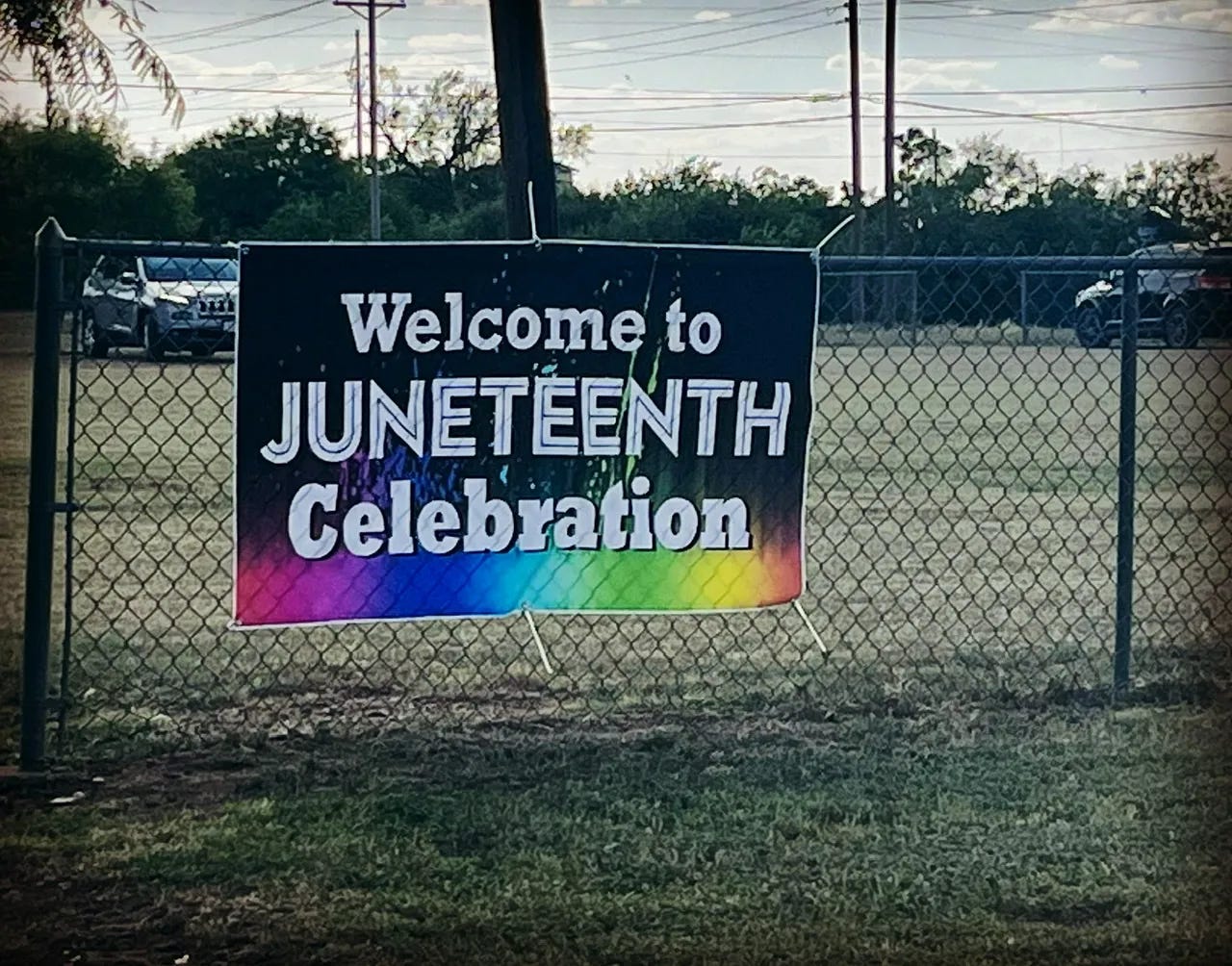Essays From West of 98: Freedom’s Continuous Journey 2025
Considering the long arc of freedom across history
Welcome to West of 98! If you are new here, read more about my Substack here. If you have not read my letter to new Secretary of Agriculture Brooke Rollins, I recommend it. Every month, I summarize my writing and a few good reads and recommendations here.
“We hold these truths to be self-evident, that all men are created equal, that they are endowed by their Creator with certain unalienable Rights, that among these are Life, Liberty and the pursuit of Happiness.” –Thomas Jefferson
On June 19, 1865, Major General Gordon Granger issued General Order No. 3 in Galveston, Texas. This momentous text was just over 100 words, but it changed the course of American history forever. Just over two months after Lee’s surrender to Grant at Appomattox Court House, and two and a half years after the Emancipation Proclamation, General Order No. 3 emancipated the remaining enslaved people in Texas. This order finally stamped out the repugnant institution of chattel slavery in America and extended Thomas Jefferson’s lofty words to every person in America created in God’s image.
Juneteenth was the culmination of almost a century of moral compromise and uncomfortable decision-making in American government that centered around the slavery question. On July 4, 1776, the Second Continental Congress endorsed Jefferson’s statement that all men were created equal, but not every signer of the Declaration of Independence was willing to live out those words. Jefferson and the other Founding Fathers were flawed humans like the rest of us and they struggled to fulfill the ideals that they knew were right.
July 4 began the journey to freedom, but the journey was not complete. Even after five more years of war with the British, America would struggle to fully implement Jefferson’s ideals. Several generations of leaders would kick the can down the road with stall tactics and indignities like the Missouri Compromise, the Fugitive Slave Act, and the Kansas-Nebraska Act. Chief Justice Roger Taney would then issue the ghastly, indefensible opinion in Dred Scott v. Sandford, the worst decision ever rendered by the U.S. Supreme Court. Finally, after over 650,000 deaths and four years of bloody fighting, General Granger extended Jefferson’s vision of freedom to the last of those who had not yet received it.
Yet, the journey of freedom still had its potholes after 1865. The government promised “forty acres and a mule” but quickly reneged. Reconstruction was a mess. Jim Crow and the long, often-violent struggle of the Civil Rights movement would await in the century to come. Even today, our nation is not perfect. It has never been perfect. It will never be perfect.
A while back, I led a Bible study on the Book of Ephesians. Unlike some of Paul’s other letters, Ephesians does not respond to a specific problem in the early Church. Instead, Paul sets forth a general guide towards greater communion with God and greater spiritual maturity. He outlines the shifts in behavior, thought, and relationships that come in that process. Paul never suggests that there is a “finish line” to this process. It is quite the opposite. Paul describes a lifelong journey of drawing closer to God. By doing so, we live out better lives and better relationships as a result. Perfection in this process is not possible. The goal is to grow better and better over time.
This is the essence of our life’s journey and of America’s journey of freedom. Thomas Jefferson set forth ideals that were worth pursuing. He and many of his contemporaries failed miserably in personally upholding those ideals. That does not make them any less valid. Over the past 249 years, America has both struggled and taken great leaps forward in the journey to live out those ideals.
Today, on June 19, 2025, we celebrate Juneteenth as a national holiday. We do so in an America that is flawed, but also an America that is orders of magnitude better than the world those enslaved persons in Texas knew on June 19, 1865.
Freedom, like communion with God, is a continuous journey. Let us not be troubled by the impossibility of perfection in our personal life journey, in our relationships with others, and in our quest to build a better nation. Juneteenth was a monumental day. It was also a step along journey. Let us remember that lesson. Let us strive to be better both individually and together each day than we were the day before.
James Decker is the Mayor of Stamford, Texas and the creator of the West of 98 website and the “Rural Church and State” and “West of 98” podcasts. Contact James and subscribe to these essays at westof98.substack.com and subscribe to him wherever podcasts are found. Check out the West of 98 Bookstore with book lists for essential reads here.




